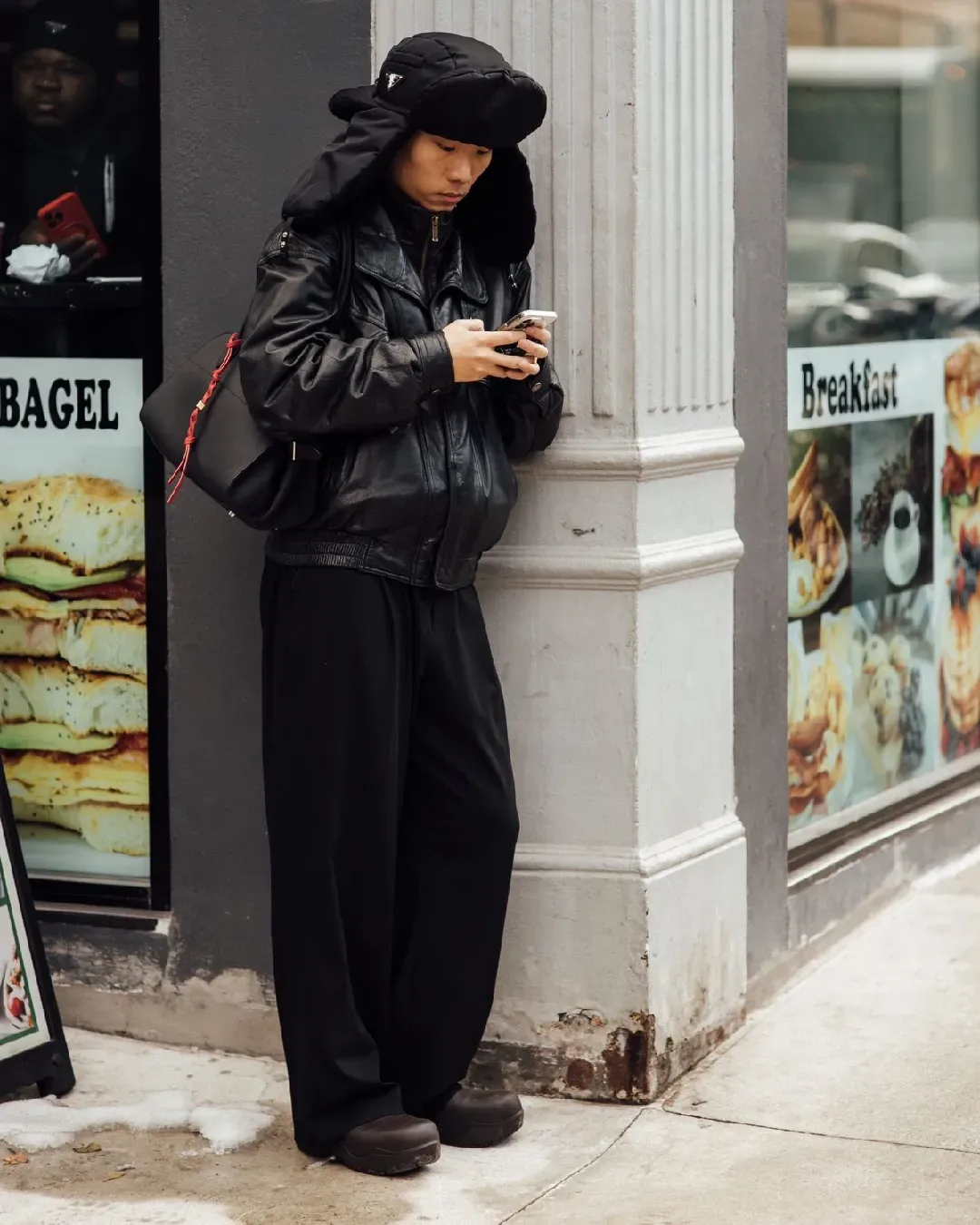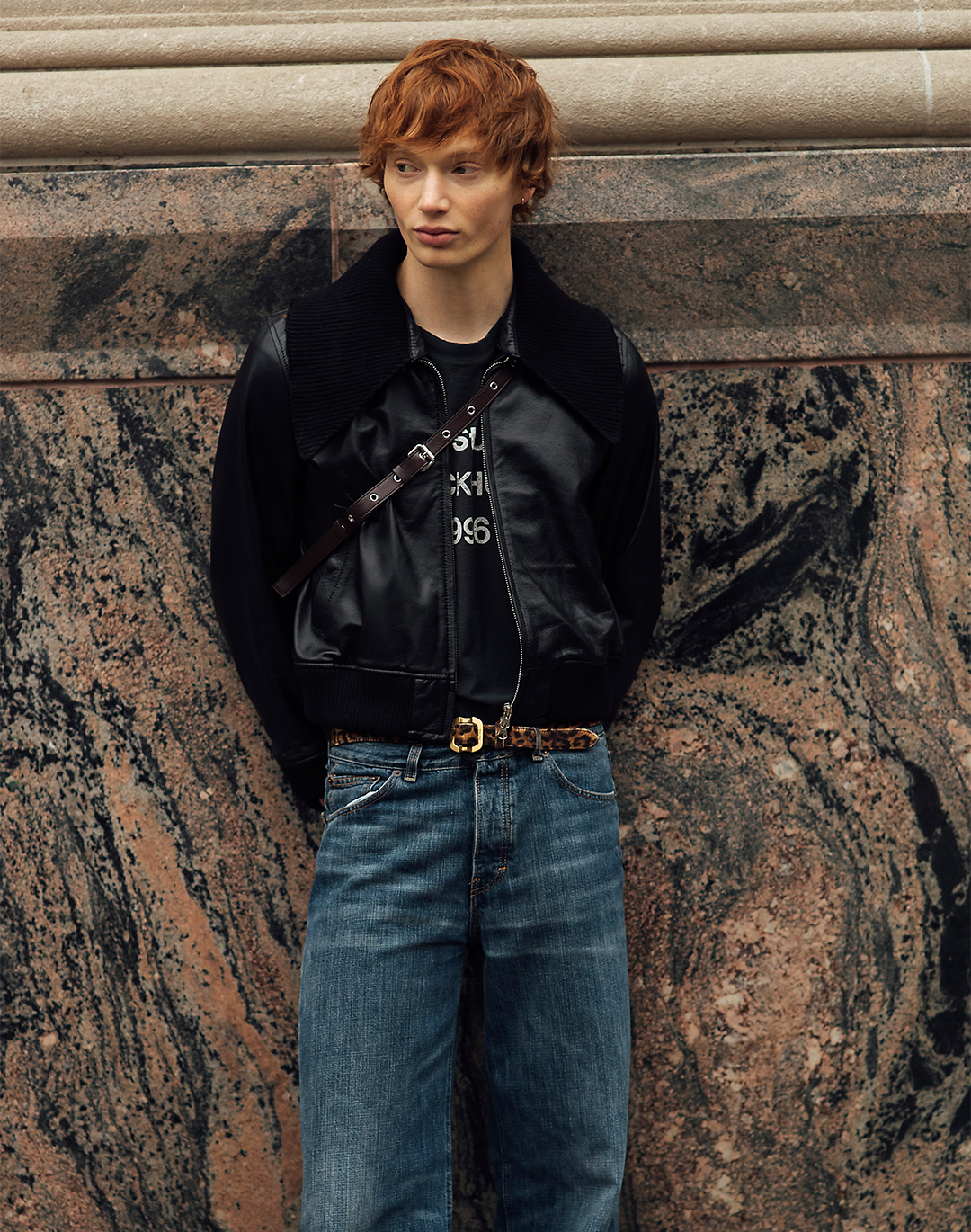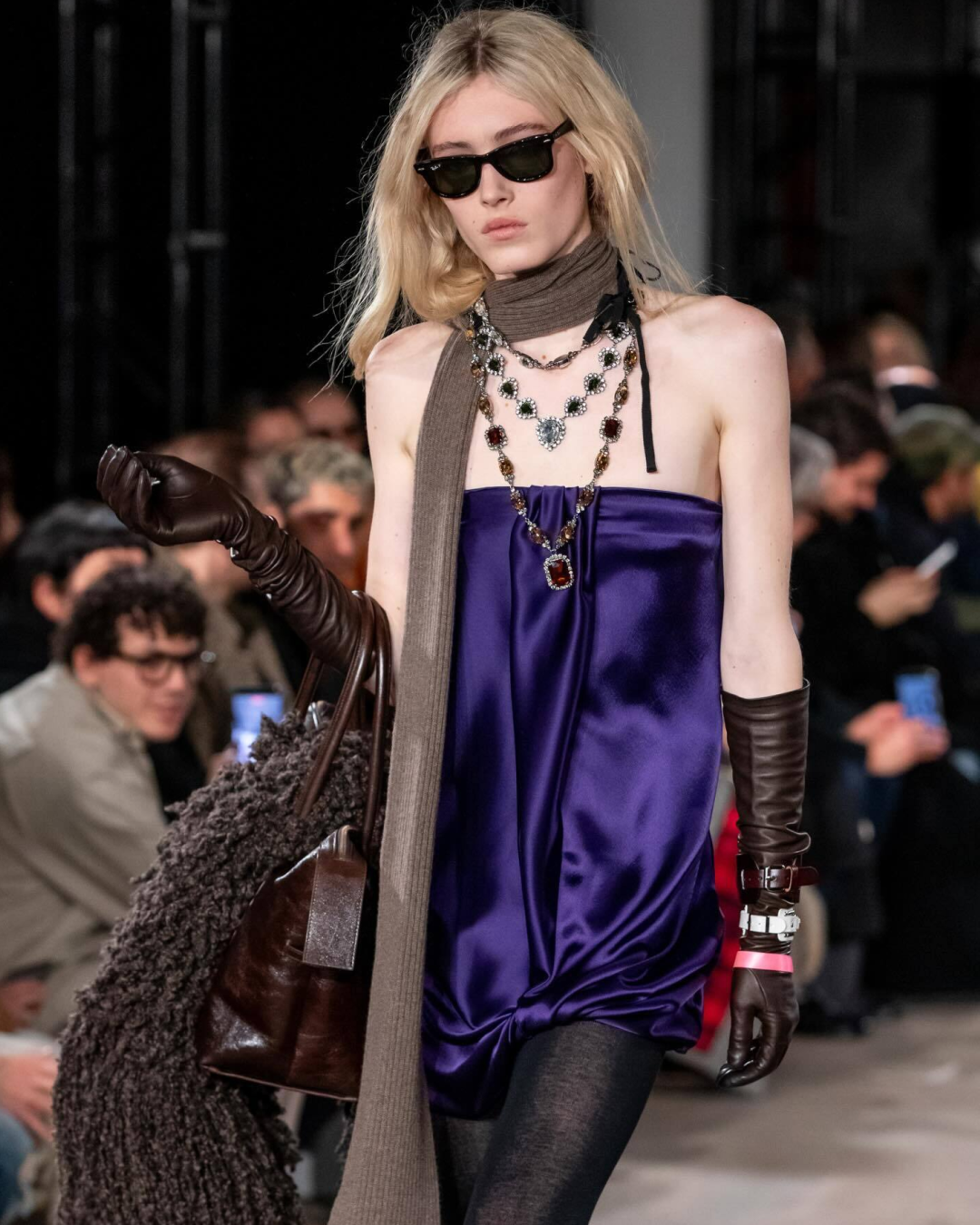
Are we witnessing the death of skinny jeans? This time the "trend that refuses to die" might have actually reached its end
Ever since, almost a year ago, we found ourselves locked in our homes, in search of a new daily balance between the sofa and the kitchen table converted into our office, we've been wondering about the effects that the pandemic is having and will have on our way of dressing, and whether they will be lasting changes. The news released by Levi's a couple of weeks ago maybe a good indicator in this sense. After introducing more and more models in stretch fabric, with a baggy silhouette and less tight fit, Levi's is preparing to launch the Red Tab line on a large scale, a collection that features mainly sweatpants and tracksuits, the symbolic items of this pandemic year. The main target of the new collection will be the Gen Z, as stated by the brand, which however takes a clear position on the future of skinny jeans, one of the most talked-about items of the fashion industry.
The debate on the future, or on the imminent, improbable or inevitable end of skinny jeans has rekindled, a controversy that has been going on for years now, a decline on the one hand continually postponed by the creative genius of Hedi Slimane, strong of his uber-cool vibe that takes us back to the 2000s, on the other hand, a death almost hoped for by the younger generations and by the movement for body positivity.
In any case, it won't be a sudden disappearance, as also projected by Chip Bergh, CEO of Levi's, who stated: "I don’t think [the] the skinny jean is ever going away on the women’s side of the business, but there’s definitely a trend towards more casual, looser fitting clothes in general.” As Vanessa Friedman wrote in the New York Times, skinny jeans, as well as high heels, "such garments don’t just represent sacrifice; they recall those moments in time when we dressed up to go out — to the office, to the bar, to the party — and interacted with others", our past life in short. The "trend that refuses to die", as the Guardian defined it in 2019, provokes opposing and antithetical reactions, generating a personal rather than generational division of tastes and aesthetics.
Skinny pants, and by extension wispy, long-limbed silhouettes, embodied by very thin, emaciated models, were the trademark of Hedi Slimane, at Saint Laurent as well as at Dior Homme, and today at Celine. The French designer, at the beginning of the 2000s, was able to impose a new, extremely cool dominant aesthetic, made even more desirable and envied thanks to the blending with the world of music and pop culture, so much so that Pete Doherty and his Libertines, but also Kate Moss, The Kills, Franz Ferdinand and The Kooks became the unofficial testimonials of the trend. Even Green Day, dressed by Hedi Slimane for a world tour, had to go on a strict diet to get into the very tight jackets and tight-fitting trousers, the symbol of the creative, not to mention the famous diet of Karl Lagerfeld made just to fit into Slimane's suits. If in the luxury world, skinnies became Slimane's prerogative, at a mainstream level it was Cheap Monday that cemented the fame and popularity of this trend. Today that moment is over, Cheap Monday no longer exists, the indie scene as we knew it is dead and the faces of the biggest fashion brands have become rappers and influencers.
While Slimane remains anchored to his vision, bringing it, albeit revisited, also at Celine, skinny jeans have become almost a political bulwark, a stance against a fashion that was, and that now should (and is trying to) open up to more body types, through different models and silhouettes, such as mum jeans, boyfriend denim, wide-leg or baggy. In this sense, a possible return of skinny dominance seems almost out of place, in a world that is becoming more and more aware of the concept of the body, and in which the controversy over Celine's too small pants sizes had caused a great debate.
The pandemic may also have accelerated the shift towards another kind of taste. On the one hand, there are those who, after a year spent almost continuously on the couch wearing sweatpants, shy away from any snug or tight-fitting item, now too used to a comfortable and therefore baggy lifestyle; on the other hand, those who, after all these months, are waiting for nothing more than to slip into tight-fitting clothes able to bring out the silhouette.
Maybe we're writing an obituary too soon, maybe we still have Howard's image from The Big Bang Theory printed in our heads as a vademecum on how not to wear a pair of skinnies. In general, like the TV series just mentioned, this item also seems to belong to a past era difficult to replicate today. Perhaps when we'll return to see many more skinny jeans on the street it won't be the sign of a return to the past, but of a return to normal. Interspersed only at times by a pair of sweatpants.













































































